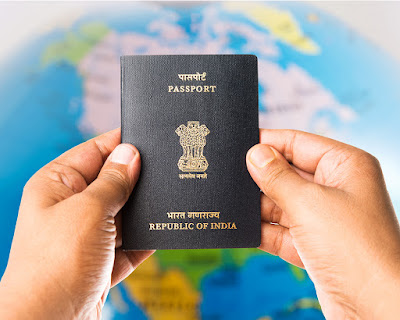Seafarer's Major problem and solution, Real hero Seafarers
True Heroes of the Pandemic .... Seafarers!!
Seafarers have been the unsung heroes of this pandemic, as the world relies on them to transport more than 80% of trade by volume, including vital food and medical goods, energy and raw materials, as well as manufactured goods across the globe. They have also been collateral victims of the crisis, as travel restrictions have left tens of thousands of them stranded on ships, or unable to join ships.
The difficulties surrounding repatriation and crew changes also have a major impact on the shipping industry and have been identified as a priority issue, with IMO and other organizations urging governments to intervene. The matter has been taken up by the UN Secretary-General, who expressed his concern about the growing humanitarian and safety crisis facing seafarers around the world, and called on all countries to formally designate seafarers and other marine personnel as “key workers” and ensure crew changeovers can safely take place. Mr. Guterres reiterated this call in his World Maritime Day message on 24 September 2020.
While IMO is encouraged by the progress made in many countries to designate seafarers as key workers and facilitate crew changes and repatriation, the Organization remains very concerned about the many countries where restrictions are still in place for seafarers. We are on the verge of a humanitarian crisis and a real safety issue – we cannot expect seafarers currently on ships to stay at sea forever. Many have already been on tours of duty significantly longer than the 11 months agreed by ILO as the maximum length of seafarers’ contracts. It is the responsibility of governments to ensure seafarers and ships can continue moving, to enable the world to overcome and recover from the pandemic and keep the global economy afloat.
Resolutions urging Governments to designate seafarers as key workers have been adopted by IMO, the United Nations General Assembly and the International Labour Organization (ILO).
Here are the answers to some of the most frequently asked questions about crew changes and repatriation of seafarers.
1. Why is it so difficult for seafarers to go home?
Governments around the world have suspended international flights, closed borders, ports and airports and imposed travel restrictions to foreign nationals to limit the spread of the novel coronavirus. Those restrictions have directly impacted the capacity of seafarers to travel between the ships that constitute their workplace, and their country of residence.
The very nature of international shipping makes it necessary for significant numbers of seafarers to travel by plane to and from ships every month, as their ports of departure or arrival may be thousands of kilometres away from their homes. Many are flown to their departure ports to embark on ships where they live and work for several weeks or months at a time. Once they reach their destination, they often need to be repatriated by aircraft.
COVID-related restrictions and closures have hampered this process. The lack of availability of commercial flights has significantly reduced travel options for seafarers. Border closures mean some were unable to transit through foreign countries, or to travel to airports to catch their flights home. The situation is further complicated by difficulties in obtaining visas or travel permits to transit countries or even to enter their countries of residence. Quarantine requirements may also hinder travel.
Additionally, significant numbers of seafarers have been unable to go home because they could not be replaced by much-needed relief crews. Due to travel restrictions, seafarers have been unable to travel abroad to embark on ships, making crew changes difficult – or impossible. As a result, seafarers report that their contracts are extended for months beyond their original end date, forcing them to stay on board instead of being reunited with their families.
This has left thousands of seafarers stranded on ships with no prospect of being repatriated. Repeated extensions of their contracts have now reached a level where this cannot continue without serious consequences for the health of seafarers and consequentially for the safety of the ships they operate.
2. How many seafarers are in this situation?
As of December 2020, it is estimated that some 400,000 seafarers remain on board commercial vessels, unable to be repatriated and past the expiry of their contracts. A similar number of seafarers urgently need to join ships to replace them.
On any given day, nearly one million seafarers are working on some 60,000 large cargo vessels worldwide.
3. Why are crew changes so important?
Crew changes are vital to prevent fatigue and protect seafarers’ health, safety and wellbeing – thereby ensuring the safe operation of maritime trade. They cannot be postponed indefinitely.
The duration of seafarers’ contracts varies, but they typically work between four and six months on ships, followed by a period of leave. When at sea, they often work 10-12 hours shifts, seven days a week – performing tasks that require constant professional attention.
Seafarers spending extended periods onboard are more at risk of adverse health effects, including physical and mental health issues. Thousands of seafarers stranded on board ships have already expressed their exhaustion, fatigue, anxiety and mental stress. And a physically and mentally fatigued seafarer has a much higher risk of being involved in a marine casualty.
Crew changes are essential to comply with international maritime regulations for safety, crew health and welfare, and employment. ILO’s 2006 Maritime Labour Convention (MLC) states that the maximum continuous period that a seafarer should serve on board a vessel without leave is 11 months. This period may be exceeded in situations of “force majeure”, but any extension must be accompanied by appropriate safeguards to avoid any abuse and protect seafarers’ rights. According to ILO, hundreds of thousands of seafarers have been required to remain on board beyond the 11-month maximum period. In some instances, seafarers have not been able to go home for 18 months.
4. What is the situation regarding access to medical care for seafarers?
There have been several cases of seafarers being denied permission to go ashore to receive medical care, despite presenting medical issues that were urgent but not related to COVID-19.
For example, a 45-year-old Russian seafarer who was suffering a stroke was initially refused permission to enter a foreign port to receive the live-saving treatment he desperately needed. The medical evacuation was finally authorised after UN agencies stepped in. (Click here for more details on this story).
Examples like this create significant concerns for seafarers, who worry they may not get the medical care they need in case they become ill, from COVID-19 or from other diseases. In addition, many seafarers have serious problems in obtaining repeat prescriptions for medication they take.
Under ILO’s Maritime Labour Convention (MLC), port States must ensure that seafarers on board ships in their territory who are in need of immediate medical care are given access to medical facilities on shore. According to ILO, the exceptional measures adopted by some governments to contain the COVID-19 pandemic cannot be invoked as such as a valid reason not to comply with this international obligation.
The obligation to render assistance to seafarers in distress, including medical assistance, is also enshrined in the IMO Safety of Life at Sea (SOLAS), Maritime Search and Rescue (SAR), Salvage and Facilitation conventions, as well as in the United Nations Convention on the Law of the Sea (UNCLOS).
5. What is IMO doing to help seafarers?
IMO has established a Seafarer Crisis Action Team to monitor developments, coordinate efforts, communicate with all relevant stakeholders and provide targeted support in individual cases and particularly urgent situations.
This dedicated team often works alongside other organizations like the International Labour Organization (ILO), the International Transport Workers’ Federation (ITF) and the International Chamber of Shipping (ICS).
Since the beginning of the crisis, this team has been working around the clock to find solutions – reassuring seafarers that contact IMO directly, contacting representatives from national governments, NGOs, trade unions or relevant associations, or orienting seafarers towards the right organization.
IMO’s swift intervention has made a difference for seafarers around the globe. For example, the Seafarer Crisis Action Team helped a critically-ill seafarer get urgent medical care and facilitated the repatriation of others. Click here for more details on measures taken by IMO to help individual seafarers.
Moreover, IMO is working with governments at a diplomatic level to encourage local and national travel restrictions to be lifted for seafarers. It has also issued a number of circular letters providing guidance and key information on issues such as ensuring safe ship crew changes (CL.4204/Add.14), personal protective equipment (CL.4204/Add.15), seafarers certificates (CL.4204/Add.19) and ensuring a safe shipboard interface between ship and shore-based personnel (CL.4204/Add.16). Click here to access all guidance issued by IMO amid the COVID-19 pandemic.
In September, IMO's Maritime Safety Committee adopted a resolution calling on all Governments to take urgent action to resolve the humanitarian and safety crisis faced by the international shipping community as a result of the COVID-19 pandemic. Read more here.
6. What can governments do?
IMO and other organizations have repeatedly urged governments to designate as “key workers” seafarers, marine personnel, fishing vessel personnel, offshore energy sector personnel and service provider personnel at ports, regardless of nationality.
Governments are urged to provide these personnel with the necessary support, such as exemptions from national travel or movement restrictions, to allow them to join or leave ships and to transit through national territories (for example to an airport) for repatriation. They must also ensure these personnel have access to emergency medical treatment and, if necessary, facilitate emergency repatriation.
Governments and national authorities should ensure that all visiting merchant ships continue to have access to berths in port and terminals and do everything possible to allow crew changes to happen. They are strongly encouraged to implement a series of protocols, which set out general measures and procedures designed to ensure that ship crew changes can take place safely during the COVID-19 pandemic – and share them widely with the relevant national authorities. The protocols cover all key issues including provision of personal protective equipment (PPE), COVID-10 testing, temperature checking and proposals for designated lanes at airports. They were designed by a broad cross-section of global industry associations and endorsed by IMO Secretary-General Kitack Lim in May.
Regarding recent positive news regarding the development of vaccines against COVID-19, Mr Lim said the key worker designation should ensure seafarers and maritime workers receive priority vaccination, to allow them to work and maintain vital global supply chains.
7. Why is the keyworker designation so important?
Key worker designation for seafarers is essential to exempt these professionals from specific COVID-related travel restrictions, allowing them to travel between their country of residence and ships, and to be repatriated at the end of their contracts. This is vital to allow crew changes to take place.
Crew changes are not only essential for the health and wellbeing of seafarers themselves, but they are also vital to ensure commercial ships can continue to carry essential goods safely and without unnecessary interruptions.
Shipping carries more than 80% of the global trade by volume. Sea transport moves the world’s food, energy and raw materials, as well as manufactured goods – including medicines and medical supplies that are vital in the fight against the COVID-19 pandemic. The keyworker designation will ensure that the trade of essential goods, including medical supplies and food, is not hampered by the pandemic and the associated containment measures.
8. Should the keyworker designation also apply to seafarers onboard cruise ships?
Yes, IMO’s calls for seafarers to be designated as key workers include cruise ships crew. All seafarers and marine personal are considered essential workers by IMO, regardless of the type of ship they work on. IMO urges governments and national authorities to ensure seafarers working on cruise ships are entitled to the same exemptions as other essential workers, such as permissions for transit and travel.
Cruise ships have faced particular challenges, with much larger numbers of people on board (both seafarers and passengers) compared to cargo ships. They may have thousands of passengers and crew, while even the biggest cargo ships may only have some 20 crew on board.
Most cruise lines stopped sailings in response to the COVID-19 pandemic and have since been working to disembark and repatriate their passengers and crew. But to do this requires collaboration and cooperation between cruise lines, governments and others – which is exactly what IMO has been calling for.
9. Which countries have designated seafarers as key workers?
Many IMO Member States and Associate Members have sent communications to IMO in which they specifically mention seafarers as key workers or made comments to indicate so. IMO disseminates such communications by means of Circular Letters which are available on the IMO website.
On 9 July 2020, 13 countries signed the Joint Statement of the International Maritime Virtual Summit on Crew Changes, in which governments pledged to facilitate crew changes and achieve key worker designation for seafarers. Others have been reported to have designated seafarers as key workers.
As of 12 January 2021, 51 IMO Member States and one Associate Member have designated seafarers as key workers. Member States are: Azerbaijan, Bahamas, Bangladesh, Barbados, Belgium, Brazil, Canada, Chile, Cyprus, Denmark, Dominica, Egypt, France, Gabon, Georgia, Germany, Ghana, Greece, India, Indonesia, Iran (Islamic Republic of), Jamaica, Japan, Kenya, Kiribati, Lebanon, Liberia, Marshall Islands, Moldova, Montenegro, Myanmar, Netherlands, New Zealand, Nigeria, Norway, Panama, Philippines, Poland, Republic of Korea, Romania, Saudi Arabia, Singapore, South Africa, Spain, Sweden, Thailand, Turkey, United Arab Emirates, United Kingdom, United States, Yemen. The Associate Member is Hong Kong (China).
However, the situation remains complex and difficulties are still reported. In some cases, the key worker designation may only apply to nationals of a particular country and restrictions still apply to seafarers from other countries - leaving foreign crew unable to transit through that country for repatriation.
More countries may have designated seafarers as key workers without reporting it to IMO.
IMO is encouraged by the increasing number of countries that have designated seafarers as key workers and invites more Member States to follow their example.
10. How can crew changes and repatriation take place safely?
IMO has endorsed a set of step-by-step protocols which set out general measures and procedures designed to ensure that crew changes can take place safely during the COVID-19 pandemic. These protocols have been drawn up by a broad cross-section of global industry associations representing various sectors of the maritime transport industry.
The protocols advice on safe procedures for joining ships as well as leaving ships and repatriation. They cover everything from provision of personal protective equipment (PPE), COVID-19 testing, social distancing, hygiene precautions, temperature checking, temporary accommodation and proposals for designated lanes at airports for seafarers, to name only a few. They include requirements for shipping companies and recommendations to governments, maritime administrations and other relevant national authorities such as health, customs, immigration, border control, seaport and civil aviation authorities.
11. What does international law say about the right of seafarers to be repatriated?
Regulation 2.5 of ILO’s Maritime Labour Convention (MLC) states that seafarers have a right to be repatriated at the end of their contracts. Under the MLC, flag States have a responsibility towards the right of seafarers to be repatriated and port States have an obligation to facilitate such repatriation as well as the replacement of seafarers. ILO has indicated that these obligations must be respected during the pandemic without prejudice for the need to take measures to prevent contagion.
ILO’s 2006 Maritime Labour Convention (MLC) states that the maximum continuous period a seafarer should serve on board a vessel without leave is 11 months. This period may be exceeded in situations of “force majeure”, but any extension must be accompanied by appropriate safeguards to avoid any abuse and protect seafarers’ rights. According to ILO, thousands of seafarers have been required to remain on board beyond the 11-month maximum period. In some instances, seafarers have not been able to go home for 18 months.
We hope you lear lots of knowledge from this article.
Pls share its maximum for other Seafarers help.
If. You have any questions pls comment below we will give rpls ASAP.
All copyright ©️ reserved
Credit to:
Mr. Asfaq Khan
🔸Mercantile marine technical and Administrative Head.
🔸 Business Consultant At British Offshore Shipping.
🔸Former chief engineer Running.
Click here to know the list of fraud Shipping company name list. Click here
* How to apply for Sid click here to know.




Comments
Post a Comment